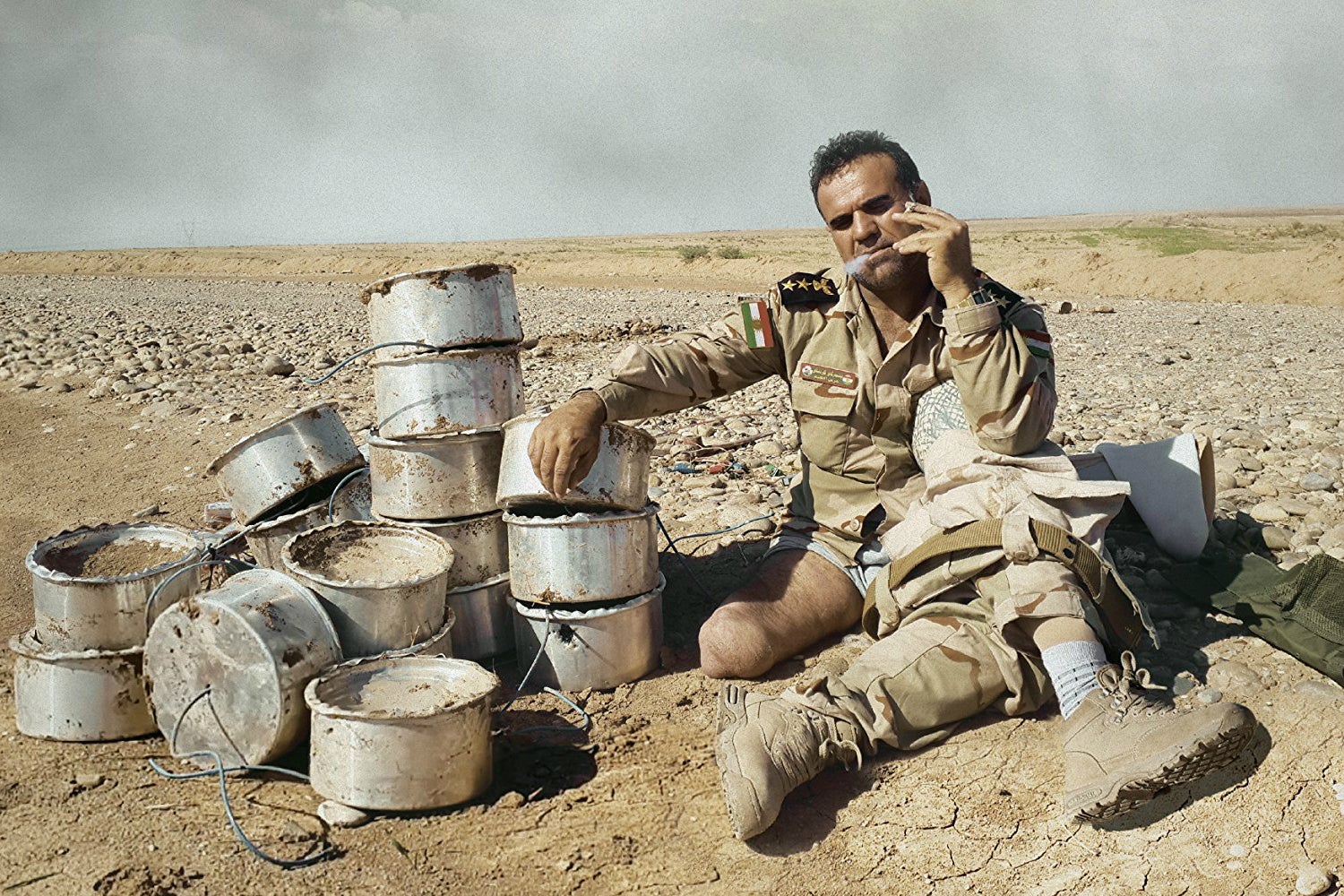The Deminer review: The tale of a legendary bomb disposal expert
Like the main character in Kathryn Bigelow’s The Hurt Locker, the “deminer” is addicted to his work in spite of its risks

Your support helps us to tell the story
From reproductive rights to climate change to Big Tech, The Independent is on the ground when the story is developing. Whether it's investigating the financials of Elon Musk's pro-Trump PAC or producing our latest documentary, 'The A Word', which shines a light on the American women fighting for reproductive rights, we know how important it is to parse out the facts from the messaging.
At such a critical moment in US history, we need reporters on the ground. Your donation allows us to keep sending journalists to speak to both sides of the story.
The Independent is trusted by Americans across the entire political spectrum. And unlike many other quality news outlets, we choose not to lock Americans out of our reporting and analysis with paywalls. We believe quality journalism should be available to everyone, paid for by those who can afford it.
Your support makes all the difference.Shinwar Kamal, Hogir Hirori, 83 mins, featuring: Fakhir Ibrahim Mohammad
Iraqi Army Major Fakhir Ibrahim Mohammad was a legendary bomb disposal expert (or “deminer”), credited with defusing hundreds of IEDs, both after the fall of Sadaam Hussein and then again when Daesh wreaked havoc in the country. This feature documentary tells his story. What’s astonishing - and gives the film its power - is that he appears to have been accompanied by a film crew wherever he went. Many of the climactic moments in his life were caught on camcorder. (These include some of the explosions.)
The “deminer” was a stocky, ruggedly good-looking man who chain smoked and seemingly far preferred a life in uniform to one as a civilian. Major Fakhir has none of the nerves about his job that David Farrar’s British wartime officer showed in Powell and Pressburger’s classic British film, The Small Dark Room.
However, the scenes of him with his pick axe and wire cutters, painstakingly unravelling devices that would otherwise leave destruction in their wake, aren’t so different from those very fraught moments at the end of the British film. The tension mounts. We are aware that a fumble or an assistant stepping on a tripwire could spell disaster.
Cell phones take on a very sinister role. They’re invariably used to trigger the devices. Like the main character in Kathryn Bigelow’s The Hurt Locker, the “deminer” is addicted to his work in spite of its risks.
Major Fakhir had several children back home in Kurdistan. His oldest son is a central figure here, guiding us through the videos of the “deminer” in Mosul between 2003 and 2008. Fakhir’s rationale for his choice of career was that, as a father himself, he needed to try to protect innocent kids.
As he noted, if he died as a result of a bomb going off, that would mean one casualty - but if he didn’t defuse the IED, the death toll could be dozens. “The children who die from the mines are like my children. If I die out here, at least I will die with a clear conscience,” he says.
The story is told in chronological fashion. We are aware from the outset that his family talk about him in the past tense. Nonetheless, we have to wait almost until the end of the film to discover exactly what happened to him.
Directors Hogir Hirori and Shinwar Kamal tells us relatively little about the major’s background; what he did before he started pulling bombs from the ground, or how he developed his extraordinary skills. We hear him late on in the film discussing a debt that he owes but we don’t learn exactly what it is.
Fakhir’s courage didn’t just extend to bomb disposal. He was also prepared to engage a hostile crowd in discussion and to tell them why they shouldn’t carry guns. “What is the point of carrying weapons? Either you kill someone or someone kills you,” he tells an audience little realising that a truck rumbling behind him is about to blow up.

Watch Apple TV+ free for 7 days
New subscribers only. £8.99/mo. after free trial. Plan auto-renews until cancelled

Watch Apple TV+ free for 7 days
New subscribers only. £8.99/mo. after free trial. Plan auto-renews until cancelled
We see him interrogating two young blindfolded terrorists, trying to work out what motivated people like them them to carry out their atrocities. Sometimes, it would be money. (One says they were paid between $50 and $100.) Sometimes, it would be antagonism against the Americans, who may have killed their relatives.
Those who planted the bombs hated the major and tried on many occasions to kill him. Those whose communities and home he freed from bombs revered him. The filmmakers don’t use much voice-over. The deminer’s legacy lies in the photos of him that are still kept in so many shops and homes across Mosul, where he is clearly venerated.
The Deminer hits UK cinemas 27 April.
Join our commenting forum
Join thought-provoking conversations, follow other Independent readers and see their replies
Comments